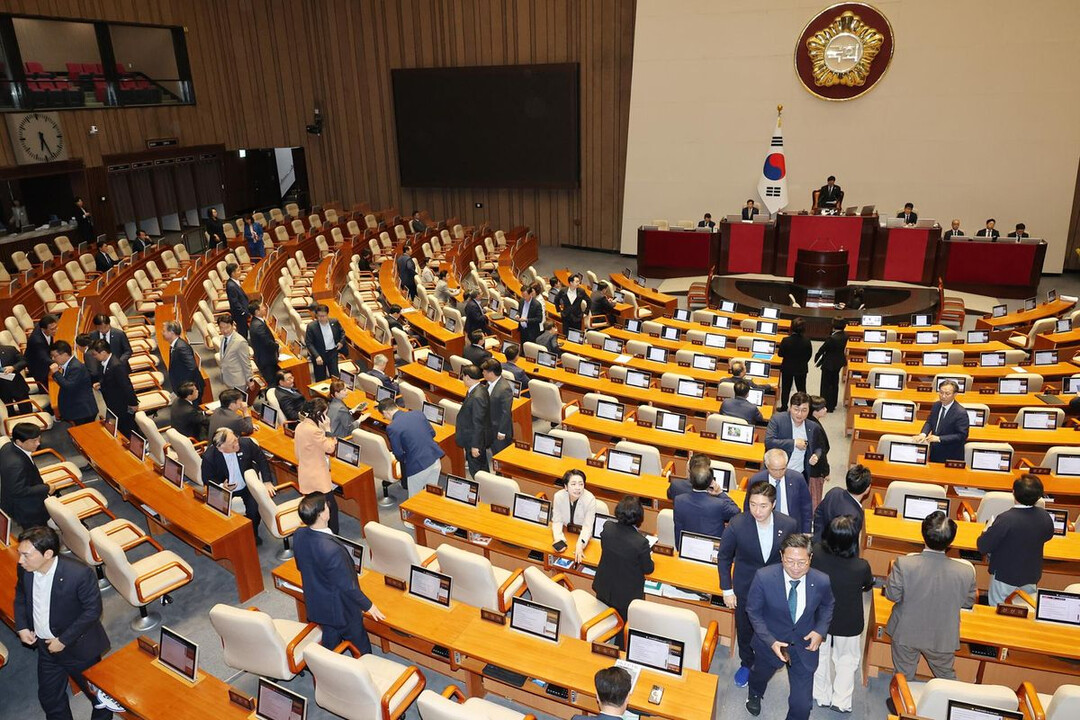
Summary: The National Assembly, with bipartisan agreement, passed over 70 public welfare bills, including one to improve emergency medical services, and approved a state investigation into the Jeju Air disaster.
The South Korean National Assembly successfully passed over 70 public welfare bills with bipartisan agreement in a plenary session on the 26th. The session, held exceptionally during the annual parliamentary audit period, focused primarily on pre-agreed public welfare legislation, thus bypassing the need for a filibuster (unlimited debate).
Central to the session was the passage of the revision to the Emergency Medical Service Act, commonly referred to as the 'Emergency Room Loitering Prevention Act.' This law aims to establish a hotline for rapidly verifying the capacity of emergency medical facilities. The amendment was approved with 260 votes in favor and 1 abstention out of 261 attending members. This legislative action addresses a critical issue where delays in confirming hospital capacity during the transfer of emergency patients have tragically led to fatalities. The revised act mandates that heads of emergency medical institutions establish and operate a dedicated, exclusive receiving phone number for communication with emergency patient transporters.
In total, 74 public welfare bills were enacted on this day. Other significant legislation passed includes an amendment to the Commercial Building Lease Protection Act, which obligates landlords to disclose management fee details upon request from commercial tenants; the Lifelong Education Act for the Disabled, which strengthens the state's responsibility for lifelong education for people with disabilities; and an amendment to the Infant and Child Care Act, expanding support for daycare centers located in areas experiencing population decline.
The Assembly also adopted a bipartisan-agreed amendment to the rules governing the number of members and names of the parliamentary standing committees, reflecting a recent government reorganization. Key changes in committee nomenclature include the Planning and Finance Committee becoming the Finance and Economy Committee, the Environment and Labor Committee transitioning to the Climate, Energy, Environment and Labor Committee, and the Gender Equality and Family Committee replacing the Women and Family Committee. Furthermore, the number of members on the Environment and Labor Committee is set to increase from 16 to 22, while the Industry, Trade, Resources, SMEs and Startups Committee will see its membership reduced from 30 to 24 following the reassignment of energy-related responsibilities.
Additionally, a resolution proposed by the People Power Party for a state investigation into the December 29 Jeju Air passenger plane disaster was reported to the plenary session. With the main opposition Democratic Party of Korea also consenting to the investigation, an 18-member ad-hoc committee is expected to be formed to lead the inquiry.
However, the current atmosphere of consensus may be short-lived. The Democratic Party has indicated its intent to push for judicial reform bills, including an increase in the number of Supreme Court justices, before the end of the regular parliamentary session. This foreshadows a high probability of future plenary sessions once again being dominated by the dynamic of a filibuster, as political tensions over judicial matters are expected to resume. The smooth passage of these public welfare bills, while a positive sign of temporary cooperation, suggests that deeper legislative battles remain on the horizon.
[Copyright (c) Global Economic Times. All Rights Reserved.]





























